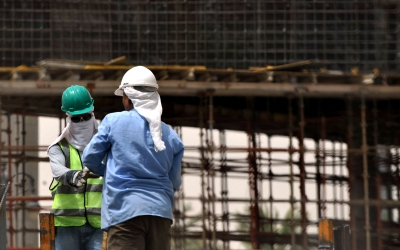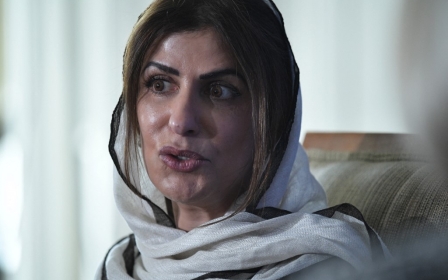French prosecutors probe slavery claims against Saudi prince

French prosecutors have said they are investigating claims that a Saudi prince kept seven employees in a state of modern-day slavery at an apartment he owned outside of Paris.
The Le Parisien newspaper reported on Monday that an inquiry for human trafficking was opened after the women, most from the Philippines, filed complaints of modern-day slavery.
A source close to the case said that prosecutors heard testimony from the women a few weeks ago, but the prince had yet to be questioned since he was not currently in France.
The prince involved in the allegations has not been publicly named.
According to the source, the maids were recruited in Saudi Arabia and worked for the prince and his family there and in France.
The alleged abuse occurred in 2008, 2013 and 2015 at the apartment in the posh Neuilly-sur-Seine suburb west of the capital, the paper reported.
Some of the maids were required to sleep on the floor and barely had time to eat while serving the prince's four children.
"The first time we met with them, what was shocking to see was that they were hungry," Anick Fougeroux, head of the NGO, SOS Esclaves ("Slaves"), told the paper. "They were crying with hunger."
The claims come less than two years after Saudi Princess Hassa bint Salman was found guilty by a French court for her role in ordering the kidnapping and attack of a plumber in her luxury Parisian home.
The only daughter of King Salman, Princess Hassa was given a 10-month suspended sentence in addition to a €10,000 ($11,000) fine for complicity in violence with the threat of a weapon and kidnapping. She was not present during the court proceedings.
A report published last month by the EU Agency for Human Rights found a litany of problems throughout Europe with the way domestic and migrant workers are treated.
Kafala system
Human rights groups have often criticised Saudi Arabia's kafala system, a policy they say is exploitative and a form of modern slavery.
The kafala system ties migrant workers to one sponsor. In order to change jobs, open a bank account, or leave the country, these workers need permission from their employers. Over 10 million people in Saudi Arabia are currently subject to the system.
Last year, Riyadh announced plans to abolish the system and replace it with a contractual relationship between expatriate employees and employers.
In March, the kingdom said it had introduced labour reforms that would allow foreign workers to switch jobs without their employers' permission.
Still, Human Rights Watch said the new changes did not go far enough and that "the reforms are limited, problematic, and by no means dismantle the kafala system".
Middle East Eye delivers independent and unrivalled coverage and analysis of the Middle East, North Africa and beyond. To learn more about republishing this content and the associated fees, please fill out this form. More about MEE can be found here.





